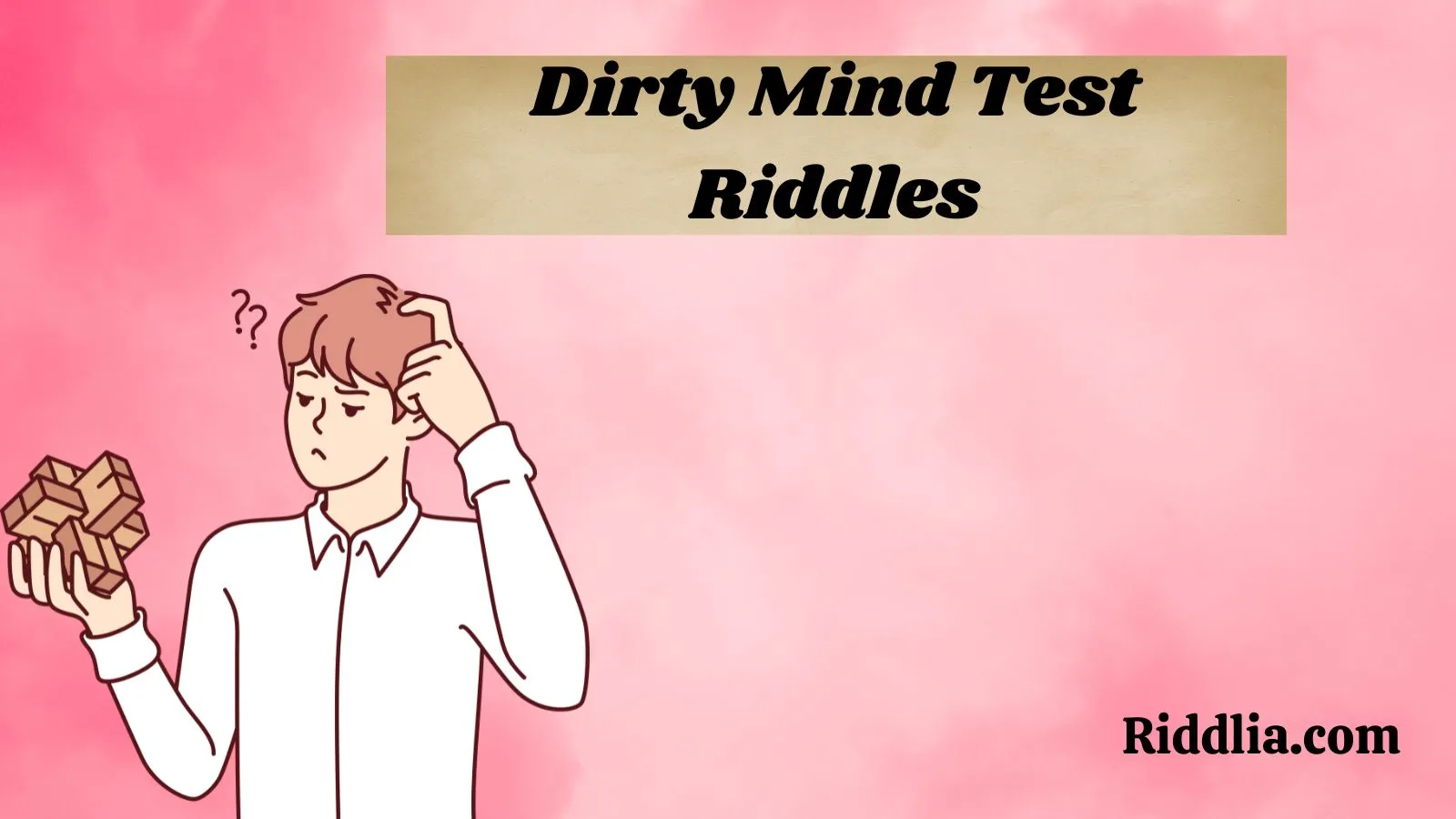The phrase “dirty mind test riddles” often refers to playful and suggestive word puzzles that challenge one’s ability to think beyond the obvious. However, this phrase may not always be the best choice for formal, professional, or advertising-friendly contexts, especially when considering Google’s search preferences and AdSense guidelines.
In this article, we will explore 70+ alternative ways to express this idea in polite, professional, and casual ways. We will also provide examples of how to use them in conversation and 15 texting examples that are both user-friendly and optimized for online use.
1. Polite & Family-Friendly Alternatives
If you want a safe-for-work and respectful way to describe these riddles, consider the following:
- Tricky Wordplay Riddles
- Clever Brain Teasers
- Mind-Twisting Puzzles
- Double Meaning Riddles
- Playful Word Puzzles
- Witty Thinking Challenges
- Humorous Brain Challenges
- Ambiguous Riddle Games
- Fun Brain Teasers
- Laugh-Inducing Puzzles
Example Usage:
🔹 Wrong: “Let’s play some dirty mind test riddles!”
✅ Better: “Let’s try some tricky wordplay riddles!”
2. Professional & Academic Alternatives
For classrooms, corporate settings, or professional content, you may need a more neutral and educational approach.
- Cognitive Thinking Challenges
- Ambiguous Logic Puzzles
- Linguistic Brain Teasers
- Figurative Language Riddles
- Critical Thinking Puzzles
- Abstract Thought Exercises
- Word Interpretation Challenges
- Creative Logic Riddles
- Lateral Thinking Puzzles
- Perception-Based Riddles
Example Usage:
🔹 Wrong: “This is a fun dirty mind test riddle for students!”
✅ Better: “This is a fun cognitive thinking challenge for students!”
3. Casual & Fun Alternatives
For casual conversations, social media, and friendly chats, use these fun variations:
- Cheeky Brain Teasers
- Witty Puzzle Fun
- Laugh-Out-Loud Riddles
- Silly Trick Questions
- Wordplay That Makes You Think
- Mischievous Riddles
- Mind-Boggling Puzzles
- Trick Question Games
- Hilarious Word Riddles
- Giggly Thinking Challenges
Example Usage:
🔹 Wrong: “I love solving dirty mind test riddles!”
✅ Better: “I love solving cheeky brain teasers!”
4. SEO-Friendly & Google-Optimized Alternatives
For blog posts, YouTube videos, or online quizzes, use search-friendly terms that work well with Google:
- Brain Teaser Riddles
- Fun Trick Questions
- Wordplay Puzzles for Smart Thinkers
- Mind-Challenging Riddles
- Puzzle Games with Double Meanings
- Tricky Word Puzzles for All Ages
- Linguistic Word Challenges
- Thinking Outside the Box Riddles
- Playful Brain Challenges
- Hilarious Logic Puzzles
Example Usage:
🔹 Wrong: “Best dirty mind test riddles to play!”
✅ Better: “Best brain teaser riddles to challenge your mind!”
5. Social Media & Trendy Alternatives
If you want something modern and shareable, try these:
- LOL-Worthy Riddles
- Mind Trick Challenges
- Confusing But Fun Puzzles
- Laugh & Think Riddles
- Internet’s Favorite Word Games
- Puzzles That Will Make You Question Everything
- TikTok’s Most Confusing Riddles
- Funny Questions with Unexpected Answers
- Hashtag Brain Games
- Emoji Riddle Challenges
Example Usage:
🔹 Wrong: “These dirty mind test riddles will blow your mind!”
✅ Better: “These LOL-worthy riddles will leave you confused and laughing!”
6. Kid-Friendly & Classroom Alternatives
For teachers, parents, or child-friendly content, try these:
- Silly Brain Games
- Fun-Filled Word Puzzles
- Creative Thinking Riddles
- Mind-Bending Question Games
- Joke-Based Riddle Fun
- Playful Question Puzzles
- Laughter-Guaranteed Brain Teasers
- Fun Classroom Riddles
- Smart & Fun Brain Challenges
- Lighthearted Thinking Games
Example Usage:
🔹 Wrong: “These dirty mind test riddles are great for kids!”
✅ Better: “These silly brain games are great for kids!”
7. Texting Examples: Creative & SEO-Friendly
Here are 15 text message examples that sound natural and work well for online readers:
- “Hey! Want to try a tricky word riddle? It’ll test your brain!”
- “I just found the funniest brain teaser! You have to try it!”
- “Can you solve this clever word puzzle? Bet you can’t!”
- “Here’s a riddle with a twist – let’s see if you get it!”
- “Mind-blowing puzzle alert! Try this one!”
- “You’ll laugh when you realize the answer to this tricky riddle!”
- “Let’s test your thinking skills with this brain game!”
- “Ready for a fun mental challenge? Try this riddle!”
- “This funny riddle will have you thinking in circles!”
- “Can you spot the double meaning in this word puzzle?”
- “A fun brain teaser to start your day – can you solve it?”
- “Here’s a joke-based riddle that will make you smile!”
- “This riddle is harder than it looks – let’s see if you get it!”
- “Warning: This tricky puzzle may confuse you!”
- “Only 5% of people get this word riddle right – can you?”
Conclusion
There are many ways to express “dirty mind test riddles” without using words that could cause issues with Google SEO, AdSense, or professional settings. Whether you’re looking for formal, casual, SEO-friendly, or kid-friendly alternatives, this list has you covered!
By choosing the right phrase for the right context, you can make your content more engaging, professional, and widely accepted across different platforms.

